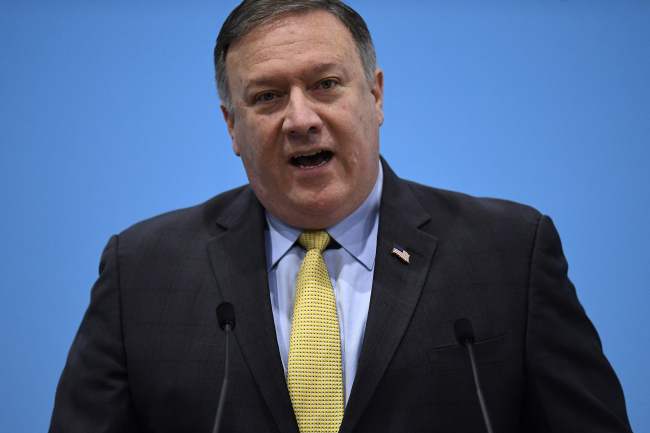With speculation rising over US Secretary of State Mike Pompeo’s trip to North Korea, expectation has been heightened that the visit would provide a breakthrough for stalled denuclearization talks.
Officials and analysts here have suggested that Pompeo would make his fourth visit to Pyongyang as early as this month. The speculation has been fueled by reports that US and North Korean delegates met at the border village of Panmunjom last weekend.
The development came amid reports North Korea might make concessions on its nuclear arsenal, possibly disclosing the list of its nuclear facilities in return for the US agreeing to declare an official end to the Korean War.
 |
US Secretary of State Mike Pompeo. Yonhap |
“We believe progress can be made” on North Korea’s final, complete and verified denuclearization, Pompeo tweeted Tuesday, a day after a phone conversation with South Korean Foreign Minister Kang Kyung-wha about Inter-Korean talks to be held in September in Pyongyang.
President Moon Jae-in’s special adviser Moon Chung-in told the BBC on Monday that Pompeo would travel to Pyongyang as early as next week and that Pompeo could work out “some kind of comprise” with his North Korean counterpart.
Citing a senior South Korean diplomatic source, local daily Maeil Business reported Tuesday that North Korea is considering a plan to offer its nuclear facilities list if Pompeo makes the trip to Pyongyang.
Washington has maintained there would be no sanctions relief or end-of-the-war declaration without significant progress on denuclearization. North Korea’s moratorium on nuclear tests and dismantlement of a missile engine site has been widely viewed as a measure far short of complete denuclearization.
Analysts said while revealing nuclear sites would indicate North Korea’s willingness to make progress on denuclearization, Pyongyang needs to be more specific than merely disclosing already identified nuclear facilities.
“When we talk about declaration of nuclear weapons, it includes opening up a complete list for nuclear materials and warheads. If North Korea tries to declare them on a step-by-step basis, it would be a disappointment for Washington,” Park Won-gon, a professor at Handong Global University, said.
In order to impress US negotiators, Park added, North Korea should accept a front-loaded denuclearization process, such as removal of nuclear warheads for intercontinental ballistic missiles capable of hitting the US mainland.
Shin Beom-chul, a senior fellow at the Asan Institute for Policy Studies, said if North Korea pledged complete declaration of nuclear weapons, Pompeo could reward it with a promise to declare an official end to the Korean War.
“Declaring the list of nuclear weapons is the beginning of denuclearization process, so it has a significant implication,” said Shin. “Pompeo definitely doesn’t want to go home empty-handed, as he did on a previous trip.”
Pompeo has been on the hot seat after his July trip to Pyongyang ended without significant concessions on denuclearization by the North. The North’s state-run media accused Pompeo of dismissing the end-of-the-war declaration by sticking to his “gangster-like” demand for denuclearization.
Despite the stalemate, the Trump administration has appeared to strike a positive note on denuclearization negotiations. State Department spokeswoman Heather Nauert said Tuesday the US talks with North Korea on denuclearization are making progress “in the right direction.”
Nauert said behind-the-scenes discussions with Pyongyang have normalized in the wake of President Donald Trump’s June summit with North Korean leader Kim Jong-un and subsequent meetings between Pompeo and other top Pyongyang officials.
“The current denuclearization talks seems to be taking place between the established channels between the two countries’ intelligence communities. In order for the negotiations to make real progress, it needs to be led by the two countries’ administrative branches,” said Shin of the Asan Institute.
By Yeo Jun-suk (
jasonyeo@heraldcorp.com)








